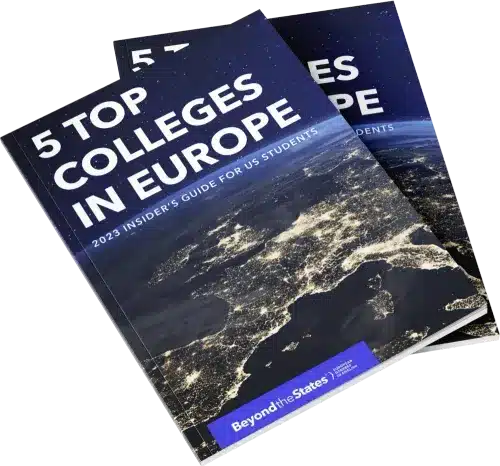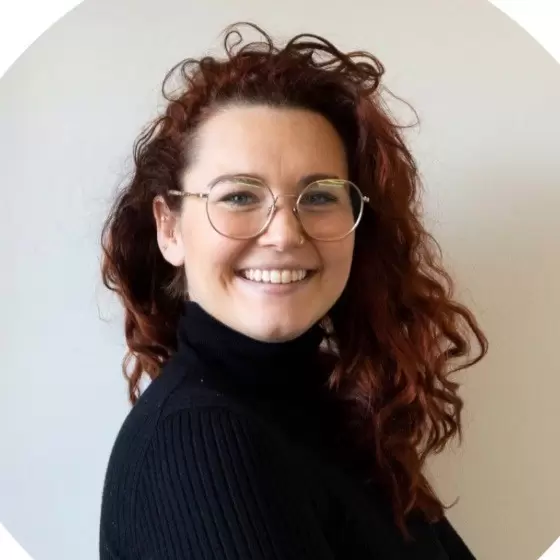Important Terms to Know About European Colleges
When I started to document the colleges in Europe with English-taught degree programs, I realized that there were many terms and concepts I needed to understand before I could delve in too deeply. Though it’s not especially exciting information, exploring possibilities for studying in Europe can be overwhelming without knowledge on these topics.
Below is some of the information you need to know before you start this journey.
Bologna Process Codifies Studying in Europe
Things have changed a lot in European higher education in the past couple of decades. In 1999, the Bologna declaration was signed by Education Ministers from 29 European countries. The purpose of the declaration was to create a European Higher Education Area with comparable and understandable degrees and credits across its member states. This enabled greater mobility for students in the EU. Degrees across the participating countries coordinated the duration and structure of degrees which makes learning outcomes consistent and helps with quality control. There are now 47 participating countries. This is also helpful to US students who get their bachelors in Europe, but want to get their masters in the US. Their qualifications and education are much more understandable to the admissions officers in the US than in the past.
European Credit Transfer and Accumulation System (ECTS)
One creation of the Bologna Process, was that of the European Credit Transfer and Accumulation System, which is a standardized system of cumulative and transferable credits across the EU. These are basically like credit hours. In the US, credit hours are usually put in terms of classroom hours (the 12 hours of credit a student gets in a semester means that they had 12 hours of time in class). ECTS hours are an estimate of the total amount of time the student is expected to put into the class (including classroom hours, reading, group work, studying for exams, etc). One full time academic year is 60 ECTS and, depending on the school and program, it takes 180-240 ECTS to receive a bachelors (which you might also see referred to as first cycle). Full time students are generally in class for 10-12 hours per week, with an additional 30 hours of study expectations outside of the classroom.
Universities, University Colleges, University of Applied Sciences
Almost every country in Europe has English bachelor degree programs at Universities and Universities of Applied Sciences (UAS). Belgium and the Netherlands throw University Colleges in the mix as well. These terms pertain only to public schools and most countries also have private schools offering bachelor’s degrees in English. Here’s the low down on what each of these are:
FREE INSIDER’S GUIDE

Top 5 English-Taught Colleges in Europe
Kickstart you education abroad with a powerful degree taught entirely in English, all without taking on any student loans!
Universities
Universities are academic and research based. They can award bachelors, masters, and doctorate degrees. They are similar to universities in the US in that students are focused on research, learn to be analytical, and to present arguments (as opposed to preparing for a vocation). Many university students go straight to a master’s degree program.
Universities of Applied Sciences (UAS)
University of Applied Sciences offer a practical higher vocational education for a specific profession. There is more of an emphasis on learning through application than through research. Internships are generally required in these programs, as the focus at UAS schools is to provide students with the skills, knowledge, and competencies needed for the professional world.
You are likely to see degrees in Business, Engineering, Digital Arts, Computer Science at University of Applied Sciences (and at Universities, as there is some overlap). You are not likely to see UAS programs in the Humanities or Natural Sciences, as both generally require a higher degree before entering the field. I think this is a really cool concept as career preparedness seems to really lack in the US schools. Students can still go on for a master’s degree, but usually need semester or so of required courses to do so.
University Colleges
Then there are University Colleges. In the Netherlands, the University Colleges offer an honors level liberal arts degree. They are part of a university, but classes, living, clubs and such are self-contained. There are additional admission requirements as well as requirements for living on campus (1-3 years depending on the school). Belgium also has University Colleges, but they are not liberal arts programs. In Belgium, the University College is affiliated with the university but not part of the university like in the Netherlands. The main difference between in Belgium is that University Colleges in Belgium do not offer doctorate degrees.
Applying to a Program
When you apply to college in the US, you are generally applying to the school and sometimes can state a major when you apply. Generally speaking, in Europe you are applying to a specific program at a school. Some students might find this overwhelming, but it is not much different than the process of declaring a major.
You will find that you have programs that cover fairly from the broad categories. Examples would include, Business Administration, Information Technology, Environment and Energy, Philosophy, International Relations, and many more. Then you will find some programs that are more specific and/or a combination of more than one study field. Examples are Sustainable Use of Natural Resources, Business Information Technology, Luxury Goods Management, International Wine Business. There is also a program that is called Economics, Politics and Social Thought and another which combines Humanities and Social Sciences (Humanities, Society and Culture). I think the options are super exciting, but if you are more of a traditionalist, there are an abundance of liberal arts program choices as well.
Erasmus Student Networks (ESN)
Erasmus is a program to promote study abroad programs (within other European countries) to European students. There are also Erasmus Student Networks (ESN) at schools across Europe. “Erasmus Student Network (ESN) is a non-profit international student organisation. Our mission is to represent international students, thus provide opportunities for cultural understanding and self-development under the principle of Students Helping Students.”
The Erasmus Student Network is the biggest student association in Europe. On each campus, these are student run organizations for international students that organize cultural, information, and social events. They organize parties (LOTS of parties) and trips as well. Activities may include pub crawls, yoga, acclimation programs for new students (including tandem language learning), weekend trips, trips during breaks, international dinners. And did I mention lots of parties?
Gauging Equivalency across Secondary Education Systems
Before admitting a student, schools want to know that the high school education the applicant had is equivalent to the ones students receive in that country. The different countries and schools have different requirements for applicants from various countries. For instance, students who are graduating with a regular US high school diploma must also have at least 3 AP courses with scores of at least 3 in Italy, Norway, the Netherlands, Denmark, and for some schools in Switzerland. In Lithuania and Germany, US students don’t need the AP courses, but must submit SAT or ACT scores. Private schools across the EU may or may not require AP classes or test scores for US students, depending on the school and program.
IB diplomas-and why you are lucky if you have one!
The International Baccalaureate® (IB) Diploma Programme (DP) is one of the world’s most exciting educational courses for 16-19 year olds. It focuses on personal, professional and academic development and is globally recognized by universities for the holistic and rigorous education it provides. – IBO.org
Good news for students graduating with an IB diploma-you get to bypass all these extra requirements! The specific requirements needed for an IB diploma allow students to apply to college in Europe with automatic equivalency. One less hoop to jump through!
Binding Study Advice (BSA)
BSA is a common practice at schools in the Netherlands and can be found at other some other schools in the EU as well (though it may have a different name). Each school has different requirements about how many classes students must pass each year. At the end of the first year, a student’s academic progress is evaluated and a decision is made by the school as to whether or not the student can continue her studies the following year. Many schools offer a non-binding evaluation after the first semester before the binding decision is made at the end of the year which can serve as a warning for students who aren’t on track.










